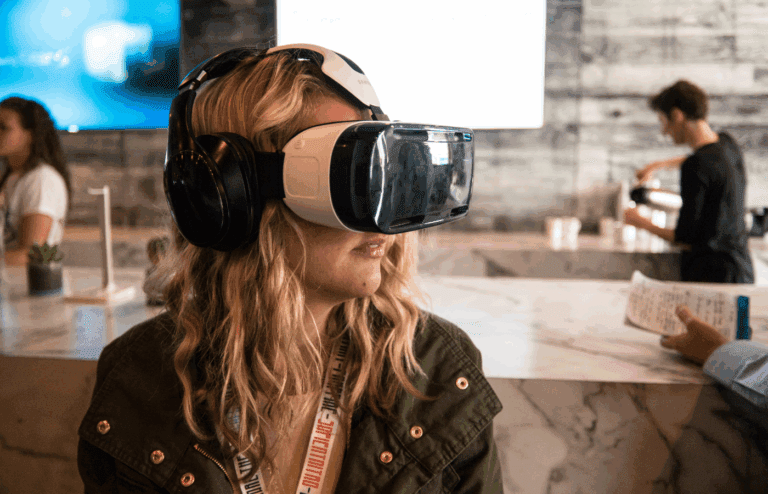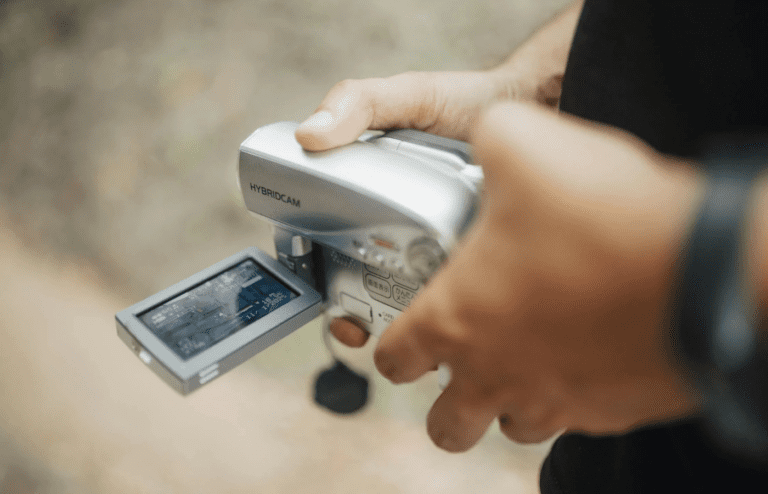In This Article…
• Research shows untreated hearing loss can lead to numerous additional risks, including falls, isolation, depression, cognitive decline, and more.
• About 40 million American adults have hearing loss, and most don’t use hearing aids.
• A new study found that restoring hearing loss may lead to a longer lifespan.

New Study Finds Use of Hearing Aids May Lengthen Lifespan
A new study published in the journal The Lancet Healthy Longevity suggests that the use of hearing aids to restore hearing loss may lengthen people’s lives.
Dr. Janet Choi, an otolaryngologist with Keck Medicine at USC, headed the study. Dr. Choi and her colleagues used data from the National Health and Nutrition Examination Survey, a large national study. The team tracked the status of roughly 1,900 adults who were found to have hearing loss during screenings. Those participants completed questionnaires about their use of hearing aids.
A major difference between those who had hearing loss and used hearing aids regularly and those who didn’t was immediately apparent. The participants who regularly wore hearing aids were significantly less likely to die early.
“The group of patients who were using hearing aids regularly had a 24% lower risk of mortality compared to the group who never use hearing aids,” Dr. Choi told NPR.
The researchers had already hypothesized that untreated hearing loss would lead to a shorter lifespan because of its negative impacts. However, they did not expect such a large difference in mortality risk.
“We were surprised,” Dr. Choi said.
A recent NIH study also reached similar conclusions that showed a distinction between untreated hearing loss and restored hearing with hearing aids. That study suggested restoring hearing loss may slow cognitive decline among high-risk people.
Prior studies have also shown that age-related hearing loss can take its toll on mental and physical health if left untreated.
The findings of Dr. Choi and her team suggested that the life extension benefits of using hearing aids to treat hearing loss held up across demographics. This means that the benefits were consistent when the researchers accounted for differences such as age, ethnicity, education, and medical history.
Further, those people in the study who had hearing aids but didn’t wear them regularly were as likely to die prematurely as those who never used hearing aids.
Most People With Hearing Loss Don’t Wear Hearing Aids
According to statistics, around 40 million American adults have hearing loss. Yet, most don’t use hearing aids. According to Dr. Choi’s research, about 12% of US adults with hearing loss use hearing aids regularly.
What Are the Risks of Untreated Hearing Loss?
Research shows untreated hearing loss can lead to numerous additional risks, including frailty, falls, social isolation, depression, and cognitive decline. One study showed even mild hearing loss doubled the risk of dementia.
“Hearing loss is an invisible problem, and it happens gradually,” Dr. Choi said, “so it takes time for you to get used to hearing aids and then get the benefit.”
Hearing Aids Are Now Available Over the Counter and Are Much Less Expensive
One factor that has long been an obstacle to people with hearing loss acquiring and using hearing aids is the cost.
Previously, they could only be obtained through an evaluation with an ear specialist, such as an ear-nose-throat (ENT) doctor or a licensed hearing health care professional (audiologist). One of these professionals would then prescribe and sell you a hearing aid with a significant markup in cost.
But a new law went into effect on October 17, 2022. The FDA established a new category of over-the-counter (OTC) hearing aids for adults 18 years of age and older with perceived mild to moderate hearing loss. This change was designed to make hearing aids more accessible and more affordable to more people. It eliminates the markup of medical office distributors, which significantly added to the cost.
When to see a Professional Instead of Getting a Hearing Aid OTC
The FDA warns that OTC hearing aids are not for everyone. Anyone under 18 years of age needs to see an ear specialist for hearing loss. This is also true for anyone with perceived hearing loss that is beyond mild or moderate. Even in the case of mild to moderate hearing loss, it’s always best to be evaluated by an ear specialist to understand the root cause of your hearing loss and determine if a hearing aid is necessary.
What to Know About Hearing Aids
Technology continues to improve both the quality and wearability of hearing aids. Even in the last few years, hearing aids have become more affordable.
Some people are still reluctant to wear hearing aids due to the stigma. However, there are many types of “invisible” hearing aids that exist today.
Some people avoid wearing hearing aids due to the annoyance of getting used to them. However, Dr. Choi recommends that new users of hearing aids commit to wearing them daily for 30 consecutive days to become accustomed to them. Based on the new findings of life extension by wearing hearing aids, the doctor has another message for people who have hearing aids stuck in a drawer: Take them out and try them again.








